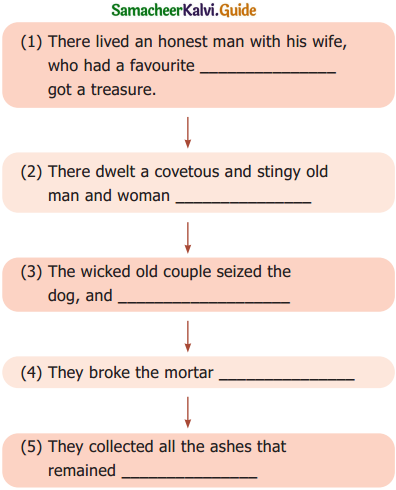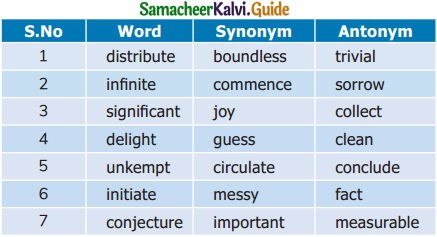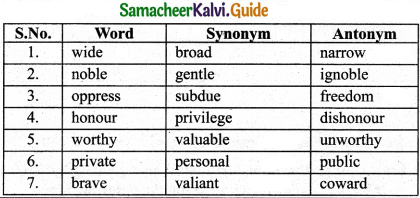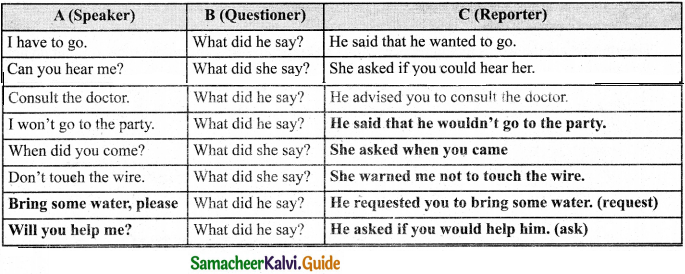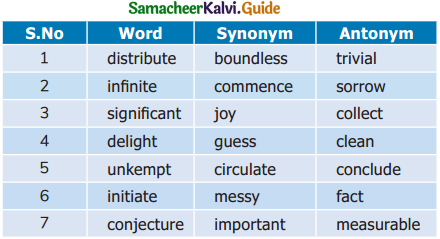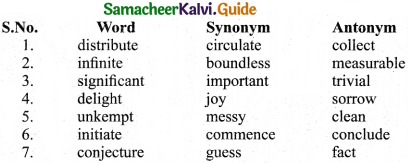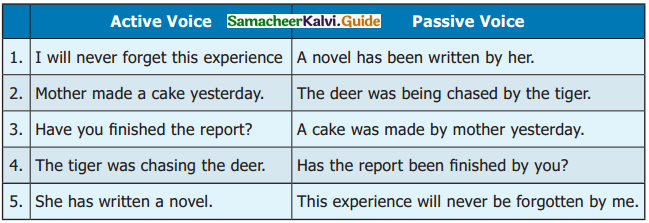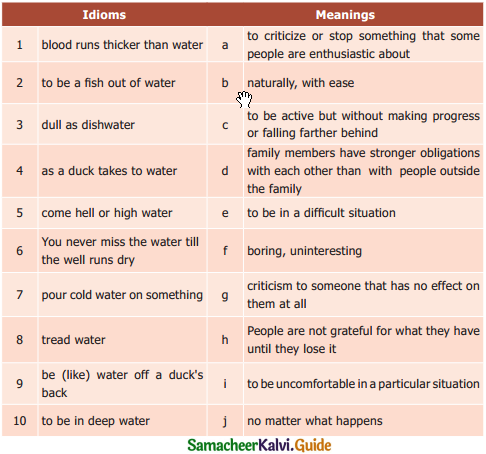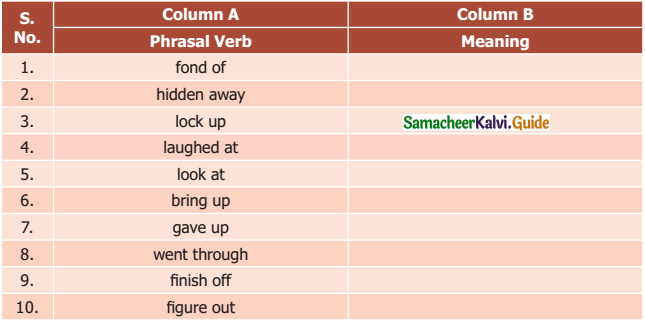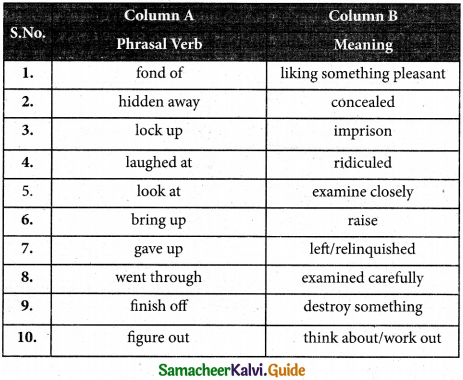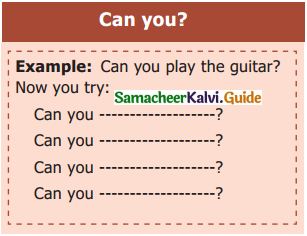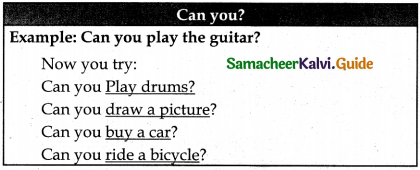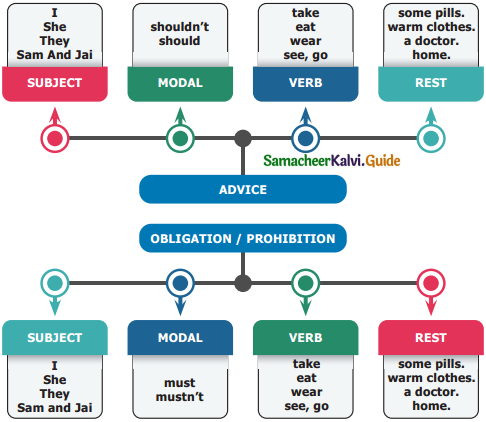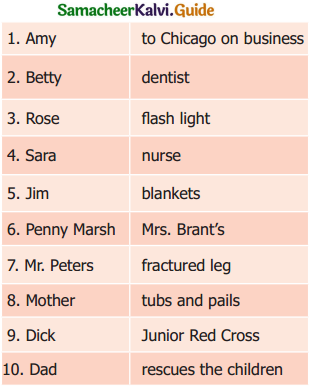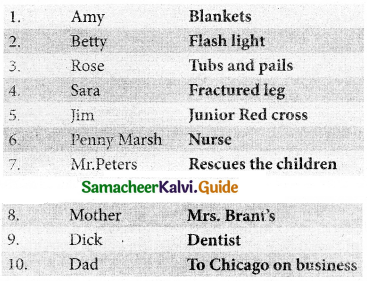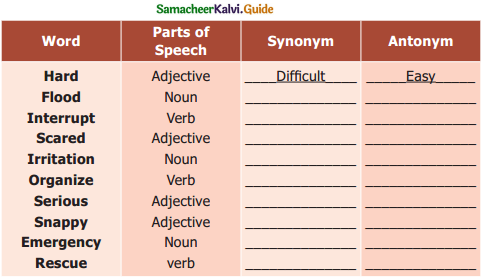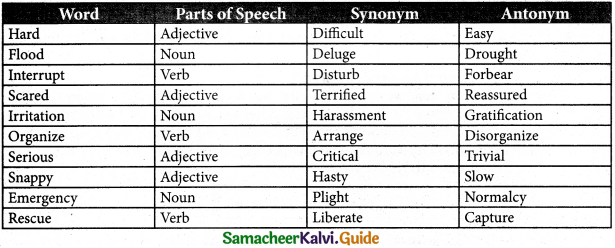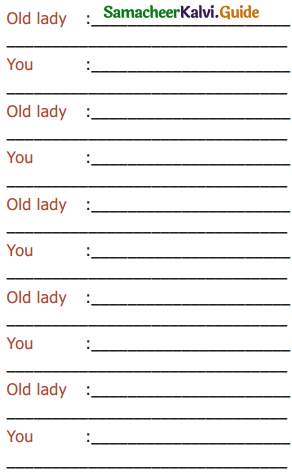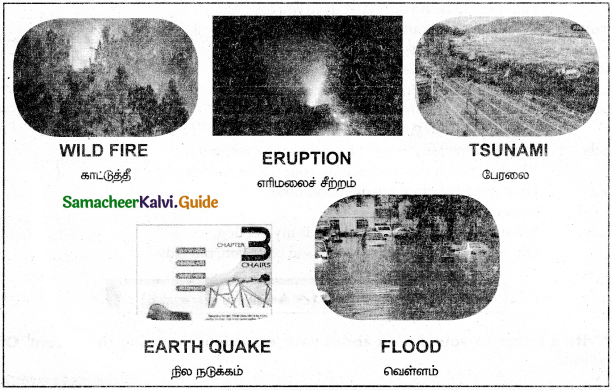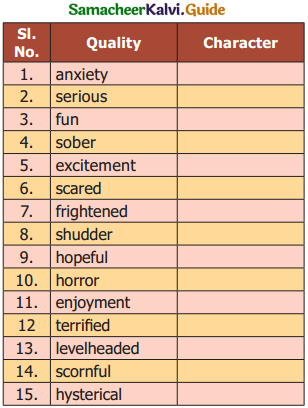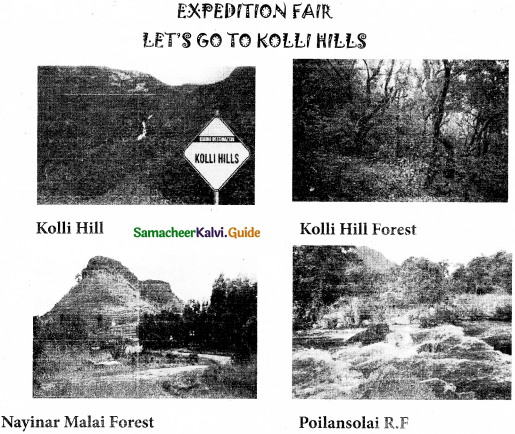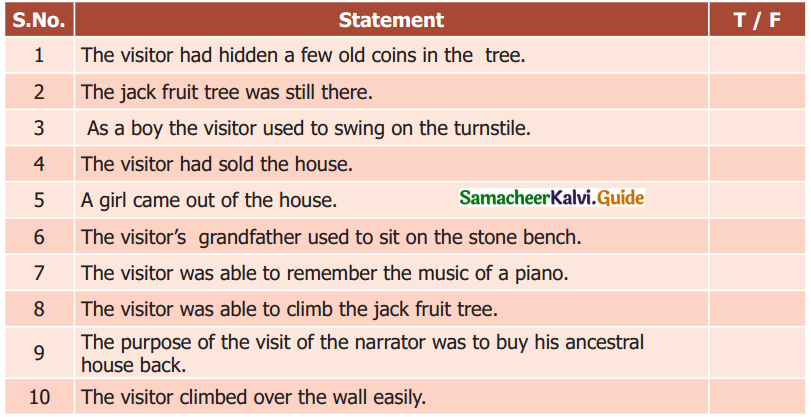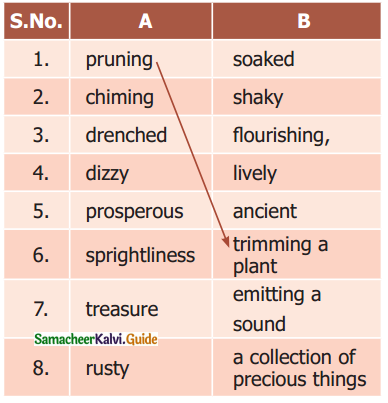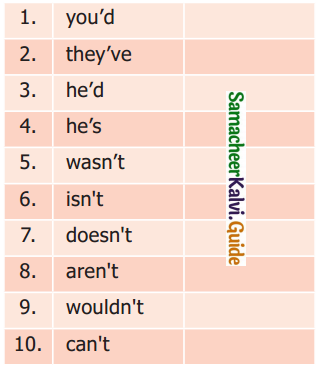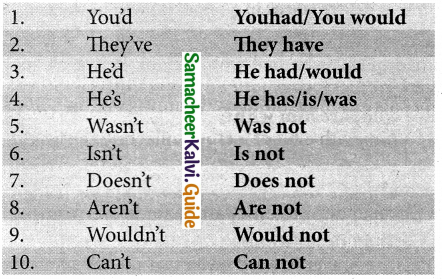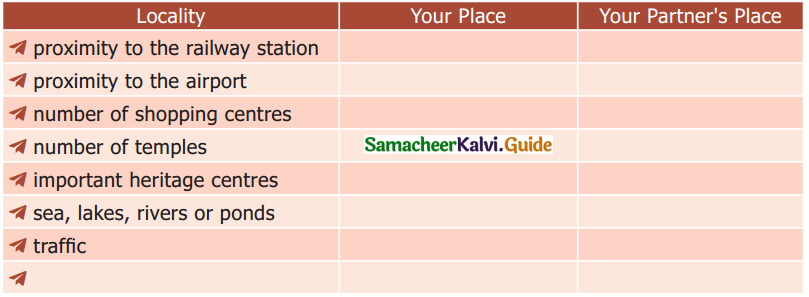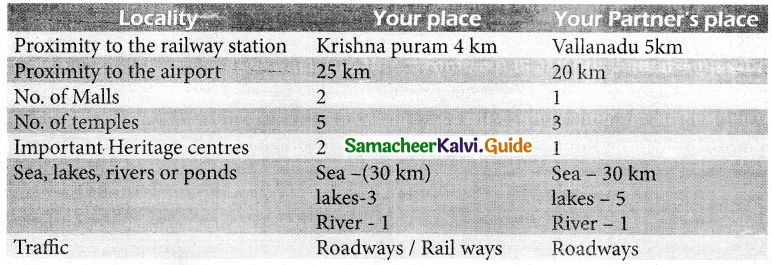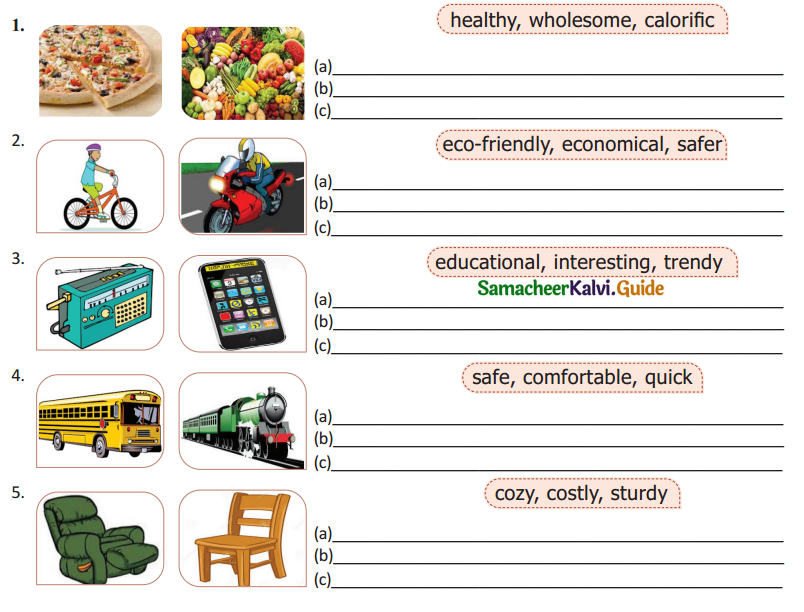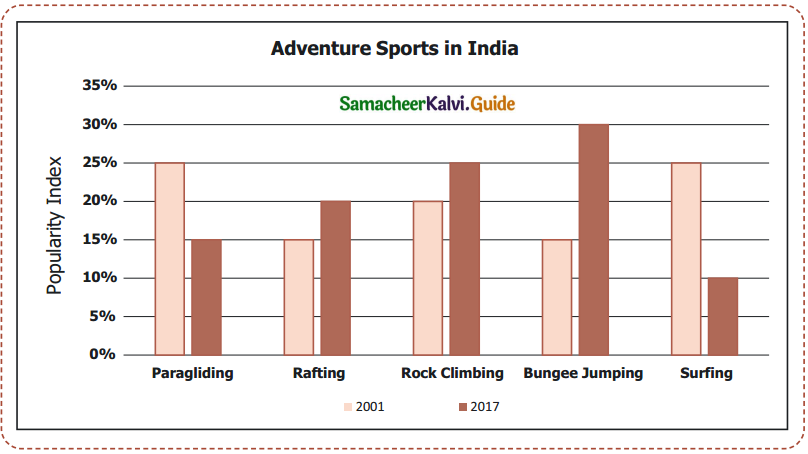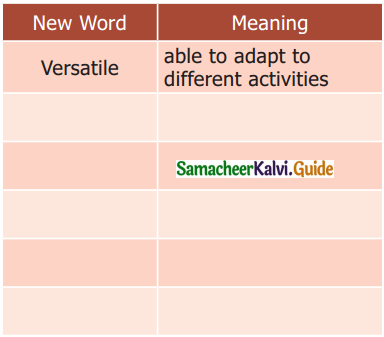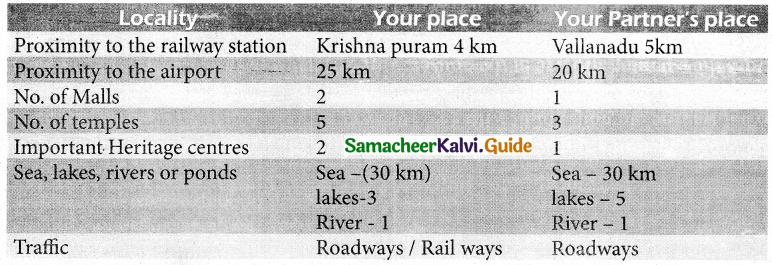Tamilnadu State Board New Syllabus Samacheer Kalvi 9th English Guide Pdf Supplementary Chapter 2 The Fun They Had Neighbour Text Book Back Questions and Answers, Summary, Notes.
Tamilnadu Samacheer Kalvi 9th English Solutions Supplementary Chapter 2 The Fun They Had
9th English Guide The Fun They Had Textbook Questions and Answers
A. Identify the character or speaker of the following lines.
- She was given test after test in geography ………………………
- He was a round little man with a red face and a whole box of tools with dials and wires ……………………
- She had been hoping they would take the teacher away altogether ……………………..
- They learned the same things, so they could help one another with the home work and talk about it ………………….
- They had a special building and all the kids went there …………………..
Answers:
- Margie
- Country Inspector
- Margie
- Students of the old school
- Tommy
B. Fill in the blanks with the clues given below to complete the paragraph.
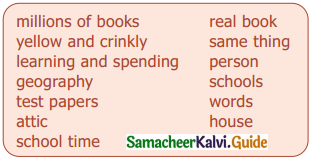
Tommy and Margie found something about the (1) ………………….. of the past. Tommy found a (2) ………………….. which has been printed on paper. The book was old and the pages were (3) ………………….. At present, the (4) ………………….. were moving on a television screen. The television had over (5) ………………….. He had found the old book in the (6) ………………….. of his house. While reading Tommy found that it was about the old schools. Margie hated school because she was having problems with learning (7) ………………….. The mechanical teacher was black and large with a screen. Margie hated the slot where she had to insert her homework or (8) ………………….. Margie did not understand how a (9) ………………….. could be a teacher and how the students were taught the (10) ………………….. Then it was (11) ………………….. for Margie and Tommy. Margie went to the schoolroom in her (12) ………………….. where the mechanical teacher stood. She was thinking about the old school and how much fun the children had, (13) ………………….. time together.
Answers:
- schools
- real book
- yellow and crinkly
- words
- million of books
- attic
- geography
- test papers
- person
- same thing
- time
- house
- learning and spending
C. Bring out the difference between your school and Margie’s school in the given tabular column. An example is done for you.
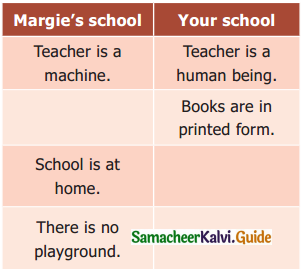
Answer:

D. Complete the following based on your reading. Answers:
- The old book was found by …………………..
- Margie was surprised to see the old book because …………………..
- The mechanical teacher was giving Margie …………………..
- Margie had to study always at the same time every day, because her mother said little girls …………………..
- The geography sector in mechanical teacher was …………………..
Answers:
- Tommy
- the words stood still instead of moving.
- test after test in geography.
- learned better if they learned at regular hours.
- geared a little too quickly.
Think and Write:
E. On the basis of reading and using your own ideas, answer the following in about 125 – 150 words each.
Question 1.
Describe Margie’s mechanical teacher and her classroom in your own words.
Answer:
Tommy found the book on 17 May 2157. It was a very old book. The pages were yellow and crinkly, and it was awfully funny to read the words that stood still instead of moving the way they were supposed to, on a screen. The mechanical teacher had been giving her test after test in geography and she had been doing worse and worse until her mother had shaken her head sorrowfully and sent for the county inspector.
![]()
Question 2.
Why did Margie hate her school? What was she thinking about at the end of the story?
Answer:
Margie hated her school because it was not fun. She was doing badly in the geography tests. Her mechanical teacher was giving her test after test. Her mother sent for the country inspector. Margie hoped that the inspector would take the mechanical teacher away.
She was disappointed when the country inspector managed to assemble all the parts of the mechanical teacher. She hated inserting her homework and test papers in the slot of the mechanical teacher. She did not like to write her answers in a punch code.
Margie thought that the old type of school must have fun. She imagined all the kids from the whole neighbourhood coming together laughing and shouting in the schoolyard. She thought that they would sit together in the classroom and go home together at the end of the day.
They learned the same thing and helped one another with the homework and talked about it. The teacher ‘ were human being, all these aspects made her believe that the type of school must have fun.
“Everybody is doing the same old thing”
![]()
Question 3.
What was strange about the ‘book’? Why did Margie find it strange?
Answer:
The pages of the ‘book’ were yellow and crinkly. It was awfully funny to read words that stood still, unlike moving on a screen. When Margie turned back to the previous page, the page had the same words on it, when she read it the first time. All these things were strange for Margie, as she used to read-only telebooks through a computer screen, without any knowledge of a real book.
